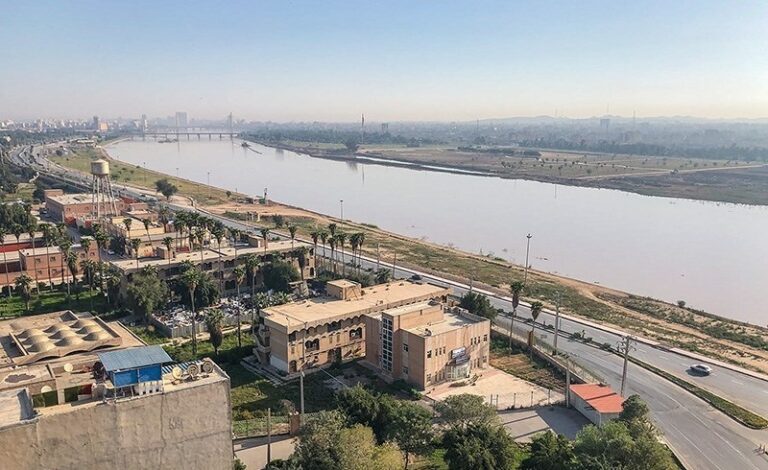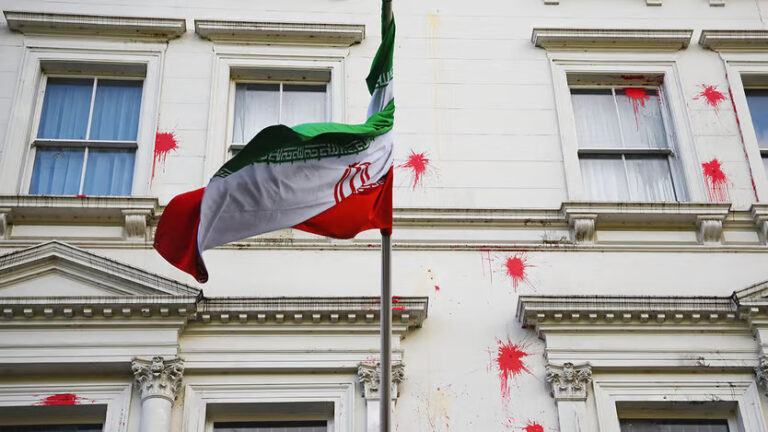NEW YORK (Agencies)
Rights group says over 1,000 people could be executed
Iran, which set off a diplomatic storm by hanging a Dutch-Iranian woman, is on target to execute 
a record number of over 1,000 people this year, rights groups said Sunday. And the execution of Zahra Bahrami is just the latest case of a “serious lack of transparency” in Iran’s growing use of capital punishment, Human Rights Watch (HRW) said. The Netherlands froze contacts with Iran following Saturday’s execution.
In 2009, the last year for which complete statistics are available, Iran executed at least 388 people and was second only to China in how many people it put to death, according to Amnesty International.
Rights groups believe there was a sharp rise in 2010 and with Bahrami’s death, HRW now estimates that at least 74 prisoners have been executed since January 1. An AFP toll based on Iranian media reports found at least 66.
“At the current rate, authorities will easily have executed more than 1,000 prisoners before 2011 draws to a close,” HRW’s Middle East director Sarah Leah Whitson said.
HRW’s Middle East researcher Faraz Sanei denounced “the Iranian judiciary’s serious lack of transparency surrounding the execution of individuals convicted of crimes carrying the death penalty.”
“A deepening of the human rights crisis”
The group said her execution and others highlight “a deepening of the human rights crisis that gripped the country following the disputed June 2009 presidential election” that secured a second term for hawkish President Mahmoud Ahmadinejad.
Bahrami, a Dutch-naturalized Iranian, was detained after anti-government protests in Tehran in December 2009. She was later charged and found guilty of narcotics offences.
Iranian news agencies reported she had been found guilty of smuggling cocaine into Iran from the Netherlands and was found with 450 grams of the drug in her possession. Iran does not recognize dual citizenship.
The woman said she was tortured into confessing and denied the charges, according to her family and rights groups.
Her daughter, quoted by the International Campaign for Human Rights in Iran, said neither the family nor Bahrami’s lawyer had been officially informed of the hanging.
“Shouldn’t they have informed her family and lawyer before executing her? We should have gone to see her before her execution,” said Banafsheh Nayebpour. “Is it so easy — that my mother is no longer in this world? Did I not have any right to see her before her execution?”
In light of the execution, the Netherlands cannot ensure the safety of Iranians who are also Dutch nationals and has issued a travel advice against them visiting Iran, a Dutch foreign affairs ministry spokesman said.
The Netherlands would raise the issue at a meeting of EU foreign ministers on Monday and would seek measures to be taken against Iran, the spokesman added, without specifying what these measures would be.
A growing number of people are being charged and executed for what HRW calls the “vague” charge of “moharebeh,” or enmity against God — the original charge against Bahrami.
HRW said at least 13 people have now been executed since November 2009 on these charges following what it called “flawed trials in revolutionary courts.”
On January 24, Iran carried out the first executions of political activists — Jafar Kazemi and Mohammad Ali Hajaghaei — detained in street protests after the 2009 election. Both were accused of “moharebeh,” according to HRW.









+ There are no comments
Add yours